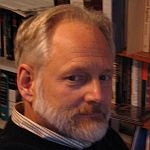 (HOST) On the day after Thanksgiving, StoryCorps encourages people around the country to participate in the Annual National Day of Listening. As part of that effort, this week commentators will be telling some of their own favorite family stories, and – like commentator Vic Henningsen – reflecting on the importance of listening in their own lives.
(HOST) On the day after Thanksgiving, StoryCorps encourages people around the country to participate in the Annual National Day of Listening. As part of that effort, this week commentators will be telling some of their own favorite family stories, and – like commentator Vic Henningsen – reflecting on the importance of listening in their own lives.
(HENNINGSEN) I think I became an historian because I grew up listening to old people tell stories and I guess I became a teacher because I enjoyed re-telling those stories and adding my own to them.
My earliest memories are of my mother’s grandmother talking about the hardships of her girlhood in Virginia during Reconstruction and of my father’s Danish aunts and uncles discussing life under German occupation during World War II. In that extended family, you knew you were part of something much larger than yourself – you were constantly being reminded of your connections to places you’d never seen, people you’d never met, and you were expected to know about them, even if you didn’t know them.
Listening carefully helped me answer questions about the people I loved, and it helped me understand them much more deeply. Why, for example, if my mother’s parents moved East in 1921 and never left, did they always refer to St. Louis as "home"? Why was Frederick, a name borne by my great-grandfather and great-uncle, considered bad luck? Asking opened doors, doors that led to pathways of understanding. Knowing, for example, that a particular piece of family silver was the result of a World Series bet made holiday meals much more interesting and cast certain older relatives in an entirely new light.
Listening became a lifelong habit. When I was working trail crew and serving as a park ranger on Mount Mansfield, I learned the trade of woods work by talking to the old guys who wandered through: the folks who’d cut the ski trails when working for the CCC in the thirties or who were the first caretakers at the lodges on the Long Trail. Later, when I became a teacher, I found myself gravitating to senior colleagues, whose highly entertaining, and highly useful, stories guided me to find my own way as I tried to make a difference in the classroom.
Late in her career, the writer Willa Cather reflected on her childhood in late 19th century Nebraska. As a young girl she got to know a number of immigrant farm families-among them my great-grandparents and their twelve children-aspects of whose lives later appeared in her books. Speaking of her conversations with those old folks, she observed, "I always felt that they told me more than they said."
They did. More importantly, they are. All we need to do is listen.